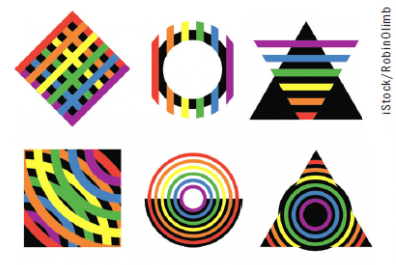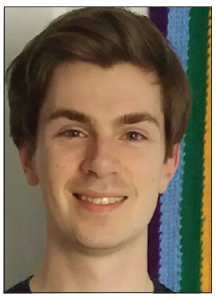
August 4, 2017, by Philip Moriarty
A New Mindset — Guest post by Andrew Coe
I was delighted when Physics World, for the third year running, published a coursework article written for the Politics, Perception, and Philosophy of Physics (PPP) module. In the guest post below, Andrew Coe, the author of this year’s Physics World PPP article, discusses his motivations for writing the piece and why publishing in Physics World was especially gratifying for him. Institute of Physics Publishing has kindly agreed that we can post a free copy of Andrew’s article. published in the August 2017 issue of Physics World: A New Mindset. (Note that the photo of Andrew at the foot of this article was taken from the Physics World article).
At the start of my fourth year of physics at UoN, I set myself a goal to complete at least one piece of science outreach by the end of the year. With strong intentions to make the most of the final year of my degree, I was sure I would find the time for this – then the coursework actually started. Balancing the intensive blocks of fourth year alongside managing Out in Education (a student-led volunteering project based here at the university tackling homophobia, biphobia and transphobia in schools) meant my hands were fully tied – lest I succumb to what felt like an inevitable crash – and I abandoned my once humble goal.
The work itself wasn’t always a chore though, this most exemplified by a module that, for me, went against the current: ‘The Politics, Perception and Philosophy of Physics’. To have survived three years of my degree up to this point, I could say I had an affinity with numbers, but to have a module where we instead discussed concepts surrounding science was wonderfully refreshing and freeing.
In one of our coursework pieces, we were encouraged to write an article-style opinion piece on a topic of our choosing. Furthermore, the best of these articles would be submitted to Physics World, the official magazine of the Institute of Physics. My dad has been a subscriber to Physics World for as long as I can remember, a fact which no doubt influenced my decision to ultimately pursue a Physics degree. So here was a goal I could make time for.
I confess that I had been planning to write a piece on LGBT+ experiences in science ever since I first enrolled for the module, and this felt like the right time. My argument gradually developed from, ‘I am a gay who does science’ into something more along the lines of, ‘How can we employ skills learned in scientific studies to understand the enormously vast range of sexual and gender identities whose existences we are only now discussing?’ Through exploring analogies to spectra, I wanted to make an educational piece for scientists who may be sceptical to identities outside of the main LGBT acronym. The bottom line was this: though it may frustrate us as scientists, we should not strive to understand all identities and causes behind them, but should instead embrace new ideas and concepts of gender and sexuality as we would a new scientific breakthrough.
A few weeks after hand-in when feedback came through, I opened the comments with a racing pulse and read, to my genuine astonishment, that mine was one of the articles that would be submitted to Physics World for consideration for publication. For me, that was a huge goal achieved.
Jump to half a year later where final project submissions are complete and graduation is on the horizon. I received an email from the module convenor, Philip Moriarty, informing me that Physics World would like to publish my article. The world went slow, one of my housemates looked on, concerned about the maniacal facial expression I was pulling – I was going be published in a magazine I’d been seeing on the periphery throughout my life, talking about two relatively unrelated concepts that had defined my last year at university: physics and LGBT+ education!
Before long, I’d been sent a version cut to 1000 words to proof-read, which I could hardly fault. They’d kept my argument consistent, vastly improved some of my questionable grammatical choices and even retained so many of the identities I’d hoped to represent. After minor reworking, I sent the article back with a mugshot (it took longer than I care to admit to take one which I felt was magazine-worthy) and awaited the final draft. Shortly after, the PDF of my article was sent to me, once a piece of coursework I was writing in my pyjamas, fully realised and brought to life by the editors, who had also found a very apt, rainbow-heavy picture to accompany my words.
The article has been published incredibly quickly in the August 2017 edition, and I’m very hopeful that real scientists out there are going to read and learn from what I’ve said – if I can prove to just one person that their identity is valid in the scientific community, I’ll be delighted.
I’d like to thank Philip for securing me this fantastic platform to spread positive messages about being LGBT+ in the scientific community. I also want to thank the editors of Physics World for acknowledging that this discussion is needed and for keeping my argument so clearly intact. I hope that we see the conversation about LGBT+ equality in STEM fields given more and more of a voice in years to come.

Andrew Coe recently completed an MSci Physics degree here at Nottingham. He is project leader for Out in Education, an organization that tackles homophobia, biphobia and transphobia in schools.
E-mail: andrew_coe@outlook.com
No comments yet, fill out a comment to be the first

Leave a Reply